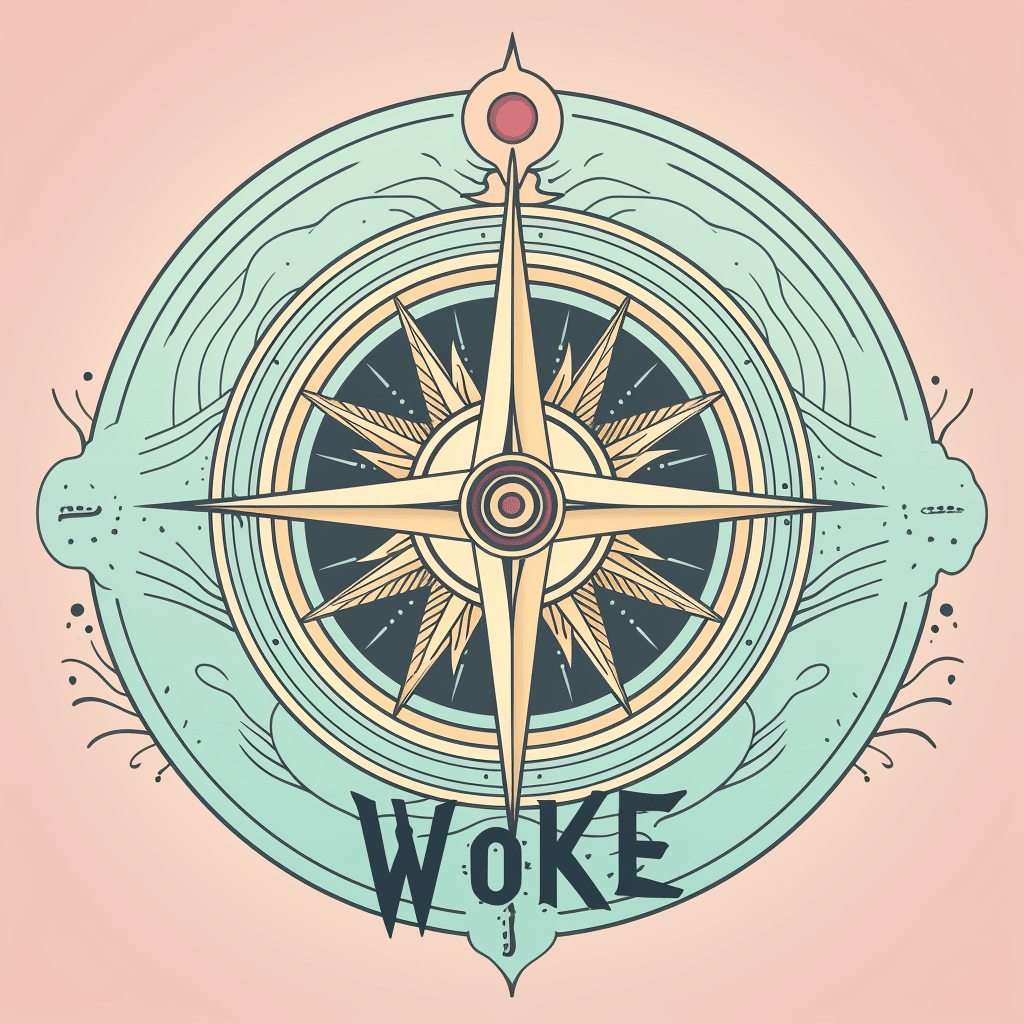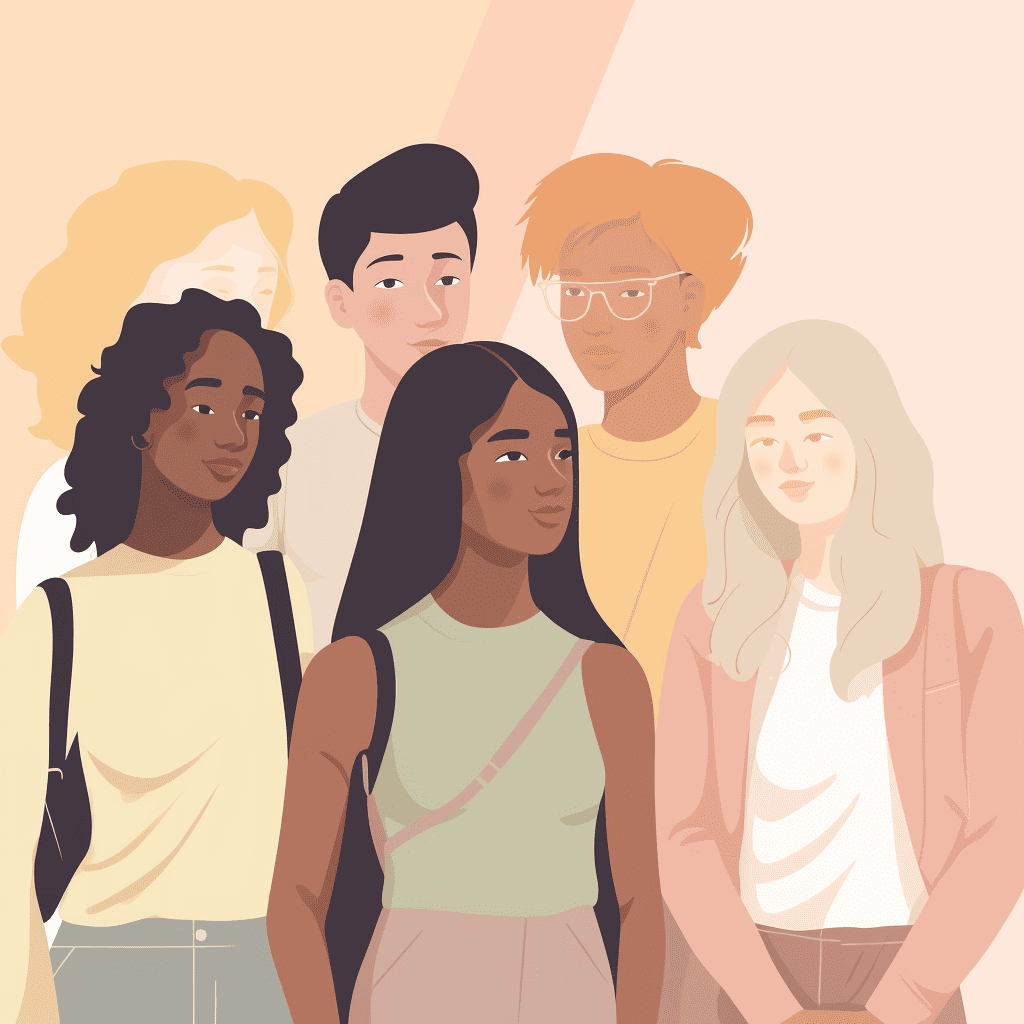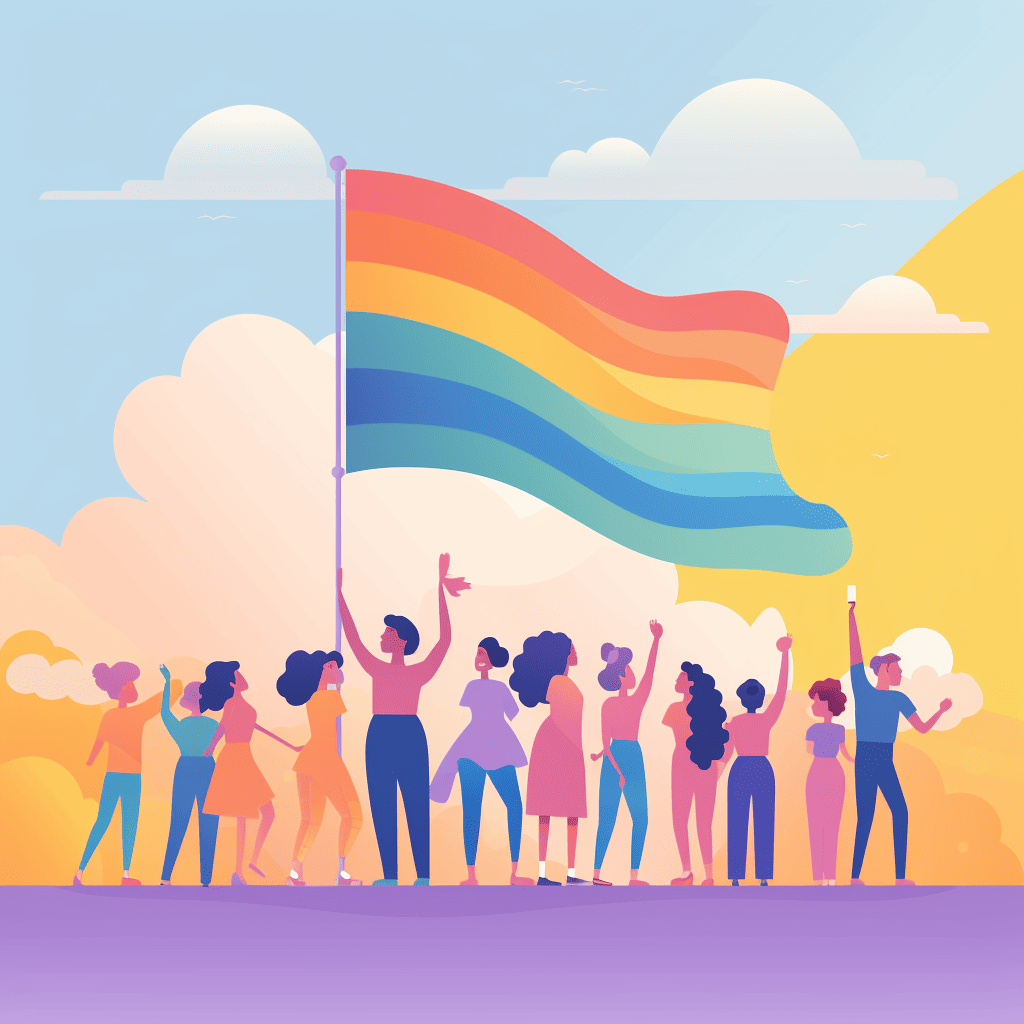Have you been hearing the term "woke" or "wokeism" in the news lately and wondered to yourself, "What does woke even mean?". In this article, we aim to provide a complete understanding of the concept of being "woke" without causing offense or controversy.
A woke person is someone who actively recognizes and challenges racial or gendered biases in society. An example of a woke organization is a school educating students about systemic racism.
In the following sections of this article, we will dive into the perspectives of both the Left and the Right on the term "woke" and explore what it means to them. It is important to note that the interpretation of being woke can vary depending on one's political, social, and cultural background. By examining these different viewpoints, we hope to provide a well-rounded understanding of the term and its implications in contemporary discourse.

The Left's Perspective
These examples depict the Left's viewpoint on the term 'woke' and offer real-life illustrations to objectively present this political perspective. It is crucial to note that these examples are shared with the purpose of providing an accurate portrayal of a specific political stance and should not be construed as an endorsement or alignment with our own views.
Affirmative Action: The practice of promoting job openings to people of color and women to ensure a more diverse workforce. It can be a contentious topic, with debates around fairness and perceived preferential treatment.

Me Too Movement: Women sharing their stories of workplace misconduct to raise awareness about harassment and intimidation. While generally supported, it can be controversial due to concerns about false accusations and the impact on the accused.
Taking a Knee (Football): Choosing to kneel during the national anthem as a peaceful protest against racial injustice. This act has sparked debates about patriotism, respect for symbols, and appropriate forms of protest.

Pronoun Declaration: Wearing pronoun badges to be inclusive of transgender individuals. While increasingly accepted, it can face pushback from those who view it as unnecessary or an infringement on personal choice.
Gender-Neutral Bathrooms: Providing restrooms for all genders, accommodating gender non-conforming individuals. Controversy can arise due to concerns about privacy, safety, and traditional gender norms.

Black Lives Matter: Advocating for the rights and fair treatment of black people. It can be controversial among those who dispute the movement's goals or tactics. Learn more from the source: https://blacklivesmatter.com/
Promoting Women in Power: Believing that increasing women's representation in positions of authority benefits society. While generally accepted, it can face resistance from those who oppose affirmative action or perceive it as gender-based favoritism.

Creating Safe Spaces: Designating areas where vulnerable populations can feel comfortable discussing their issues. While generally supported, controversy may arise around the concept of excluding certain viewpoints or the perceived coddling of individuals.
Embracing Pride Flags: Displaying pride flags to signal LGBTQ+ inclusivity. While some controversy exists, it is generally more accepted as society becomes more supportive of LGBTQ+ rights. Learn more about the history of Pride flags.

Acknowledging Privilege: Recognizing one's own privilege and actively listening to less privileged individuals. While it can be uncomfortable for some, it is generally seen as a positive step toward understanding and empathy.
The Right's Perspective
The following examples present the right's perspective on the term 'woke' and provide real-life instances that reflect this viewpoint. It is important to note that these examples are presented with the aim of accurately representing a specific political perspective, and they do not necessarily align with our own views or endorse any particular stance.
Race-Based Silencing: Telling a white person they don't have the right to speak because they're seen as an oppressor based on their race. This can be highly controversial and evoke strong reactions due to debates around free speech, discrimination, and power dynamics.
Canada's Bill C-16: A law that mandates the use of preferred pronouns for transgender individuals, with violations potentially considered human rights violations. This can be contentious, with debates surrounding compelled speech and the balance between individual rights and social inclusion.
Gender Pluralism: The assertion that there are over 70 genders and branding disagreement with this view as morally wrong. It can be highly controversial due to clashes with traditional notions of gender and disagreements on the concept of gender identity.
Digging up Old Tweets: When a company searches and brings up old tweets or photos from someone's past to damage their reputation, particularly in political campaigns. It can be controversial due to concerns about privacy, forgiveness, and the impact of past actions on present situations.
Banning Comedians: TV networks and entertainment venues blacklisting comedians for making edgy jokes that were considered acceptable in the past. Controversies arise around the boundaries of humor, censorship, and the evolving cultural landscape. Louis CK is one of the more recent comedians targeted.
Affirmative Action: The practice of prioritizing underrepresented groups, such as women, in hiring or educational opportunities. It can generate controversy around questions of fairness, reverse discrimination, and the impact on merit-based selection.
Critical Race Theory: A school's history curriculum that presents a narrative framing white people as oppressors, leading to debates on the portrayal of history, systemic racism, and its effects on students' self-perception.
Puberty Blockers: The use of medication to delay puberty in children who experience a disconnect between their gender identity and biological sex. Controversy arises due to concerns about the potential impact on long-term physical and psychological well-being, informed consent, and the age of decision-making. There are also noticeable adverse side effects of puberty blockers.
Social Media Shadow Banning: Alleged practices by social media platforms to limit the reach or visibility of certain viewpoints. While it can raise concerns about bias and freedom of expression, controversies surrounding this topic may vary based on individual perspectives and evidence of actual practices.
Virtue Signaling: Brands using pro-LGBT or pro-BLM imagery to appear inclusive, which can be seen as marginalizing those with differing views. It is often discussed in relation to marketing strategies and corporate responsibility, and while it can be debated, it may be seen as less controversial compared to other examples.
Day of Absence: A college requesting white students to voluntarily stay home for a day to reflect on privilege and engage in discussions. While it may generate discussions around racial dynamics and diversity initiatives, controversies may be relatively milder compared to other examples.
Cancel Culture: The act of "canceling" a college speaker due to controversial views on power and race. While it can generate debates about free speech, academic freedom, and accountability, controversies surrounding cancel culture often vary depending on the specific circumstances and public sentiment.
Historical Context
The term "woke" has its origins in African American Vernacular English (AAVE) and has a historical context deeply rooted in the civil rights movement. The concept of being woke emerged during the 1960s and 1970s as a way to describe individuals who were socially and politically aware of the systemic racism and inequality experienced by Black Americans.
It was a call to action for Black communities to remain vigilant, informed, and active in the fight against racial injustice. Even though it has roots decades ago, it grew in popularity after the 2014 police killing of Michael Brown.
Over time, the notion of being woke expanded beyond its original usage and entered mainstream discourse. In recent years, the "woke" movement, also known as "wokeism," has gained traction across various social and cultural spheres.
It encompasses a broader awareness and critique of societal issues such as racial discrimination, gender inequality, LGBTQ+ rights, environmental justice, and more. The movement aims to challenge and dismantle oppressive systems, promoting inclusivity, equality, and social justice.
Wokeism Movement
The rise of social media and online activism has played a significant role in the popularization of wokeism. Platforms like Twitter and Instagram have provided spaces for marginalized communities to share their experiences and raise awareness about social injustices. Hashtags like #StayWoke and #BlackLivesMatter have become rallying cries for the movement, amplifying voices and mobilizing supporters worldwide.
However, the term and its associated movement have also faced criticism and backlash, with detractors accusing it of being performative or dismissive of differing perspectives.
The historical context of being woke and the subsequent development of the wokeism movement highlight the ongoing struggle for social progress and equality. It represents a collective effort to address and rectify historical and systemic injustices. While the term and its meaning continue to evolve, the underlying principles of awareness, empathy, and activism remain at its core.
The wokeism movement seeks to foster a more inclusive society by encouraging critical thinking, challenging norms, and advocating for change in pursuit of a more equitable future.
Woke Companies
Woke Capitalism is a term used to brand companies that utilize woke principles to effectively advertise to an audience. Let's quickly go over some examples of "woke advertising".
Nike
In 2018, Nike launched an ad campaign featuring Colin Kaepernick, the former NFL quarterback who had become a controversial figure due to his protests against racial injustice during the national anthem. The ad, bearing the slogan "Believe in something. Even if it means sacrificing everything," demonstrated Nike's alignment with social justice causes, particularly those pertaining to racial equality.
Pepsi
Pepsi released a commercial in 2017 featuring Kylie Jenner that was meant to project a message of unity and peace during a time of heightened social tension. However, the ad received backlash for trivializing protests and social justice movements, particularly the Black Lives Matter movement. Instead of being viewed as "woke", this ad was largely criticized as tone-deaf and opportunistic.
Ben & Jerry's
Ben & Jerry's has been consistently socially and politically engaged, using their platform to advocate for various issues such as climate change, LGBTQ+ rights, and racial justice. Their ad campaigns often communicate these themes, and they have created specific ice cream flavors to raise awareness and funds for certain causes.
Dove
The Dove "Real Beauty" campaign was launched to challenge traditional beauty standards and promote body positivity. The ads often feature women of various sizes, shapes, and racial backgrounds, which contrasts with many traditional beauty product ads that have often promoted narrow beauty standards.
As of my knowledge cutoff in 2021, Pinterest has made efforts to create a positive and inclusive environment on its platform. While not a traditional advertising method, it has implemented features like skin tone ranges for beauty searches to cater to diverse user groups and made commitments to limit harmful or discriminatory content.
Bud Light
In 2019, Bud Light used its Super Bowl ad to promote a gender-neutral product and a message of inclusivity by showcasing both men and women enjoying their beer, breaking from the traditional beer ads that often target male consumers. In 2023, the company partnered with Dylan Mulvaney, a transgender social media influencer, which sparked backlash from their customer base.
Target
Target has made several moves to be more inclusive in their advertising and in-store policies. They've committed to featuring models of all body types and backgrounds in their ads. In 2015, they also removed gender-based signage in some of their kids' departments. in 2023, Target released a "PRIDE" collection, sparking a boycott which resulted in a $10 billion drop of their total stock value.
Chick-fil-a
Chick-fil-A has been involved in several controversies related to social and political issues, particularly regarding LGBTQ+ rights. Recently, the company has been less associated with "woke advertising" and more associated with traditional and conservative values.
50+ Examples Of Being Woke
These examples demonstrate how being "woke" can be applied to a wide range of areas, including media, arts, education, technology, social justice, and sustainability.
Being woke involves actively recognizing and challenging societal injustices while promoting empathy, inclusivity, and positive change.
- A woke TV show that addresses social issues like racism, sexism, and LGBTQ+ rights, promoting awareness and understanding.
- A woke brand collaborating with indigenous artists to create culturally respectful and empowering designs, supporting and uplifting marginalized communities.
- A woke magazine featuring diverse cover models and inclusive content, challenging beauty standards and promoting body positivity.
- A woke organization hosting workshops on allyship and anti-racism, providing education and resources to foster a more inclusive society.
- A woke video game that explores themes of social justice and challenges systemic oppression, encouraging players to think critically about societal issues.
- A woke musician using their lyrics and platform to advocate for human rights, racial equality, and environmental sustainability.
- A woke theater production that centers marginalized voices and tells stories of underrepresented communities, promoting empathy and understanding.
- A woke educational program teaching students about the history of social movements, empowering them to be active participants in creating change.
- A woke restaurant sourcing ingredients locally, supporting sustainable farming practices, and providing fair wages to workers.
- A woke book club reading and discussing literature from diverse authors, expanding perspectives and promoting empathy.
- A woke film festival showcasing movies that challenge stereotypes, amplify marginalized voices, and promote social awareness.
- A woke nonprofit organization working to address homelessness, advocating for affordable housing and supporting vulnerable populations.
- A woke politician pushing for policies that promote social justice, equity, and environmental sustainability.
- A woke parenting blog discussing topics like consent, gender equality, and fostering inclusivity in raising children.
- A woke art exhibition exploring themes of identity, race, and social justice, sparking dialogue and challenging perspectives.
- A woke fashion brand using sustainable materials, fair trade practices, and inclusive sizing to promote ethical and inclusive fashion.
- A woke podcast discussing issues like mental health, racism, and LGBTQ+ rights, providing a platform for underrepresented voices.
- A woke university offering scholarships and mentorship programs for disadvantaged students, promoting access to higher education.
- A woke community center organizing events that celebrate diversity, foster dialogue, and promote social change.
- A woke technology company prioritizing data privacy and security, and actively working to address algorithmic biases.
- A woke sports team using their platform to raise awareness about social issues, support community initiatives, and promote inclusivity.
- A woke wellness retreat center offering inclusive programs focused on mindfulness, self-care, and holistic healing.
- A woke social media campaign raising funds and awareness for grassroots organizations working for social justice.
- A woke environmental organization advocating for renewable energy, sustainable practices, and conservation efforts.
- A woke mentorship program connecting young people with experienced professionals from diverse backgrounds, fostering inclusive career development.
- A woke comedy show using humor to challenge stereotypes, promote understanding, and address social issues.
- A woke festival highlighting indigenous cultures, providing a platform for traditional art, music, and storytelling.
- A woke healthcare clinic providing culturally sensitive care and addressing healthcare disparities in marginalized communities.
- A woke documentary shedding light on social inequality, systemic racism, and the impact of colonization.
- A woke gaming convention promoting diversity and inclusivity within the gaming industry, addressing representation and equity.
- A woke social justice campaign advocating for police reform, criminal justice reform, and ending systemic racism.
- A woke mentorship program for women in STEM fields, promoting gender equality and representation in traditionally male-dominated industries.
- A woke travel company offering responsible and sustainable tourism options, supporting local communities and minimizing environmental impact.
- A woke science initiative promoting diversity and inclusion in scientific research and STEM education.
- A woke media outlet providing unbiased reporting, diverse perspectives, and coverage of social justice issues.
- A woke poetry slam event providing a platform for marginalized voices, addressing social issues through spoken word performances.
- A woke advocacy group organizing protests, demonstrations, and lobbying efforts for human rights and equality.
- A woke technology startup developing accessible and inclusive software solutions for individuals with disabilities.
- A woke museum exhibition challenging historical narratives, acknowledging the contributions and experiences of marginalized communities.
- A woke mentorship program connecting professionals with formerly incarcerated individuals, promoting reintegration and reducing recidivism rates.
- A woke community garden providing fresh produce to low-income neighborhoods and teaching sustainable gardening practices.
- A woke music festival prioritizing gender-balanced lineups, promoting gender equality and representation in the music industry.
- A woke fashion campaign featuring models of diverse body types, challenging beauty standards and promoting body acceptance.
- A woke educational conference addressing implicit bias, cultural sensitivity, and fostering inclusive learning environments.
- A woke architectural design firm prioritizing sustainable materials, energy-efficient buildings, and accessible design.
- A woke social enterprise employing and empowering individuals from marginalized communities, creating economic opportunities.
- A woke faith-based organization promoting inclusivity, acceptance, and social justice within religious communities.
- A woke mentorship program pairing marginalized youth with mentors from similar backgrounds, providing guidance and support.
- A woke community-led initiative organizing neighborhood clean-up efforts, promoting environmental consciousness and civic engagement.
- A woke architectural project incorporating sustainable design principles, renewable energy sources, and innovative solutions to combat climate change, while also respecting and preserving the cultural heritage of the local community.
- A woke culinary movement promoting food justice, sustainable farming practices, and equitable distribution of resources, aiming to address issues of food insecurity and build stronger, healthier communities.
- A woke theater production utilizing immersive storytelling techniques and interactive elements to engage the audience in thought-provoking discussions on social justice issues, blurring the boundaries between performer and spectator.
By examining these examples, we have come to understand that being woke encompasses an active recognition of systemic biases, an unwavering commitment to inclusivity, and a dedication to promoting positive change. From advocating for racial equality and LGBTQ+ rights to supporting sustainable practices and challenging traditional narratives, being woke requires continuous learning, empathy, and action.
It is important to remember that the term "woke" is not static and its meaning can evolve over time. The examples provided in this article serve as a snapshot of how being woke is manifested in various contexts. It is a reminder that progress and social awareness are ongoing journeys, and being woke is an ever-evolving process.
We hope that this article has shed light on the diverse ways in which individuals and communities embody being woke. May these examples inspire and encourage further discussions, actions, and reflections on the importance of social justice, equality, and inclusivity.
